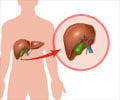The success of a cadaver programme in a hospital depends on whether the hospital has employed trained transplant coordinators or not.

Transplant co-ordinators are the key person who coordinate all the activities like counselling of families for organs, taking care of post-mortem formalities, ensuring that organs are utilised by various needy patients and ensuring that the grieving family is supported till the very end of the donation process.
In a country that has acute shortage of organs, the role of transplant coordinator in increasing the cadaver donation rate has now been recognized by the government of India and the recently amended Transplantation of Human Organ Act of 2011 makes it compulsory for a hospital to have such a coordinator to apply for a license to do transplants.
The workshop for Transplant Coordinators aimed at also bringing to the fore the exemplary work done by some of the transplant coordinators in the field of cadaver organ donation. Ms. Santi Krishnan a Transplant coordinator working with the National Transplant Resource Centre (NTRC), Kuala Lumpur, Malaysia had given a new meaning to her profession as a Transplant Coordinator, she lost her father three weeks ago and donated his kidneys and liver. Closer home, Ms. D. Keranal, Transplant coordinator, Apollo Hospitals, donated the organs of her 19-year-old nephew Manuel Kavin, when he became brain dead following an accident in May 2011. Santi and Keranal had gone both gone beyond the call of duty and ‘walked the talk’ and were felicitated by MOHAN Foundation.
Various issues that can make a difference in getting yes or no for donation from grieving relatives, the complexity of post-mortem procedures and the ethical issues related to the subject were discussed. Transplant coordinators from across India interacted with experienced faculty and with another and shared their successes and challenges in the field.
MOHAN Foundation has been training transplant coordinators through structured training courses since December 2009 and trained 334 transplant coordinators so far and many of them continue to work in the field. From December 2009 to August 2012, through the efforts of various trained coordinators 591 organs and 677 tissues have been donated.
Advertisement









